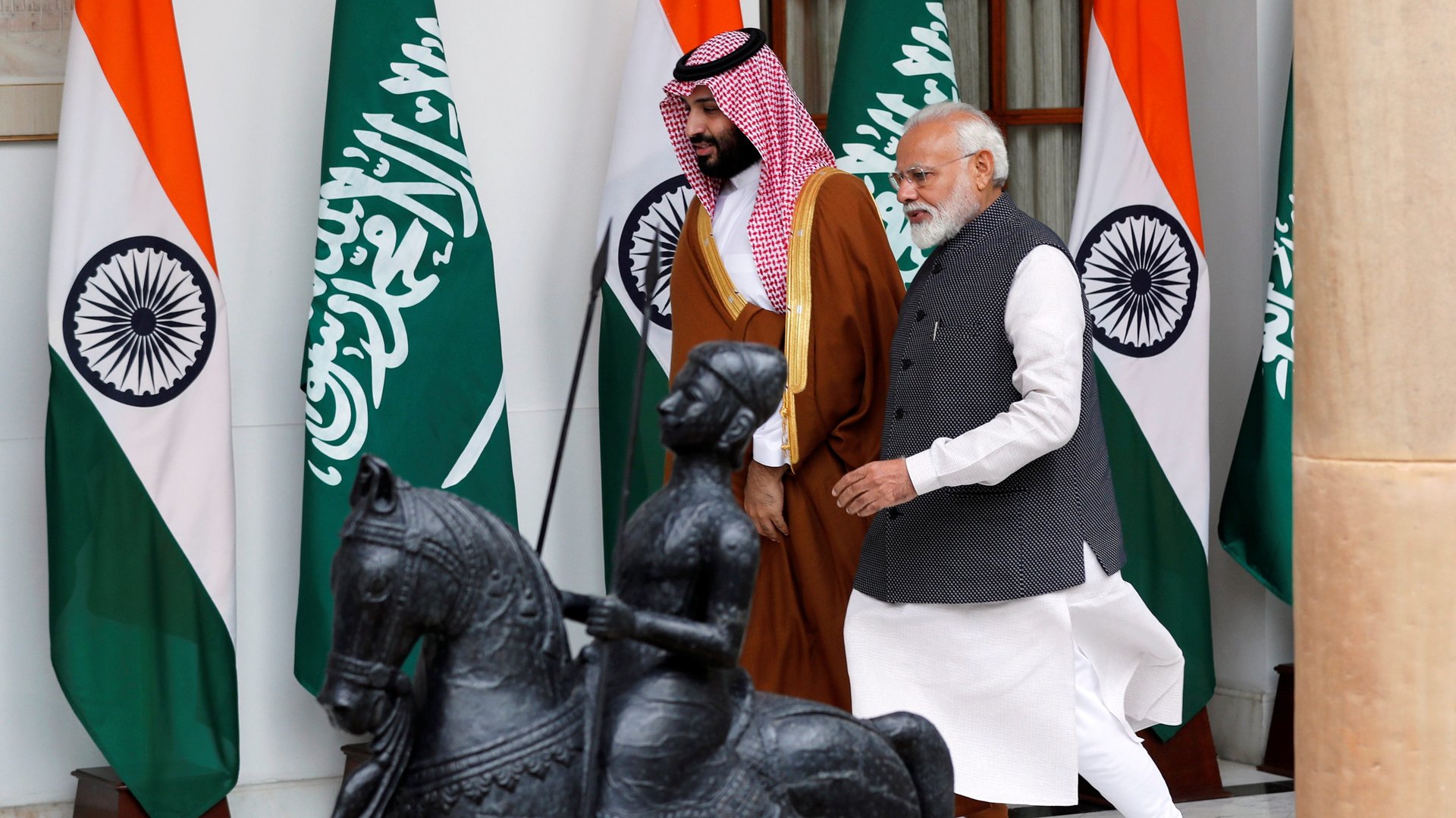With trade relationships at stake, Modi’s party disavows rant against Prophet Muhammad
Last weekend, Indian vice-president Venkaiah Naidu was in the emirate of Qatar to inaugurate a “startup bridge.“


Last weekend, Indian vice-president Venkaiah Naidu was in the emirate of Qatar to inaugurate a “startup bridge.“
Trade between the two countries, at over $15.03 billion (1.16 lakh crore rupees) in 2021-2022, was expected to grow further in the years ahead, with this new platform meant to boost collaboration between the two countries’ startup sectors. All that now hangs in the balance.
On May 26, Nupur Sharma, a fiery spokesperson of prime minister Narendra Modi’s Bharatiya Janata Party (BJP), launched a verbal attack on Prophet Muhammed during a television debate. This sparked outrage among Muslims and the political opposition in India. Some even asked for police action against Sharma; her statements also fuelled violence in the city of Kanpur in Uttar Pradesh.
The Modi government, however, chose to ignore all the backlash. Up until yesterday (June 5).
The Arab countries are unhappy with India…
By the time Naidu was readying for a dinner meeting yesterday with Abdullah bin Hamad Al Thani, the deputy emir of Qatar, the ripples of Sharma’s comments against Islam’s founder had reached Qatar. Naidu’s dinner with Al Thani was cancelled, although the reason cited was covid-19. A press conference scheduled for Naidu on the next day, too, was nixed.
Qatar isn’t alone. Saudi Arabia, Kuwait, and Iran have now raised concerns with the Indian government. Incidents like these, they said, were proof of how unsafe Muslims were in India.
As a diplomatic crisis began to snowball in the Gulf Cooperation Council (GCC) region, Indian envoys were summoned to explain the country’s position. Today (June 6), the Organisation of Islamic Cooperation, which has 57 member states, also voiced its concerns about the situation. In response, the spokesperson of the Indian foreign affairs ministry called the OIC’s views “narrow-minded” and “unwarranted”, and that the comments “denigrating” the prophet were made by “certain individuals.”
Just a day ago, though, India’s envoys, like the one in Qatar, had alluded to Sharma and Jindal as “fringe elements” who didn’t represent India’s views on religious freedom. The BJP, in a rare instance of standing up against the vilification of Muslims, officially distanced itself from its own spokesperson’s views. Sharma has now been suspended from the party while Jindal has been expelled.
Qatar has welcomed these steps but has said that it awaits an official apology and a public condemnation of these remarks by the Indian government.
At the heart of the action taken by the BJP and India’s envoys lies India’s $156 billion trade with the Gulf region.
…and India’s trade with the Gulf is at stake
India’s reliance on the Gulf countries for future investments and oil makes the region vital for India, especially for its large oil conglomerates like Reliance Industries. The countries there are also home to a large Indian expatriate community.
At the moment, a major portion of India’s energy requirements is met by countries of the GCC. India also imports meat, cereals, sugarcane, coffee, cocoa products, and processed tobacco products, among other commodities, from them.
In 2021-22, India exported products worth $421.89 billion to the six GCC nations United Arab Emirates, Saudi Arabia, Qatar, Oman, Kuwait, and Bahrain. Its imports stood at $612.60 billion in this period, according to the ministry of commerce.
The costs, though, may go beyond what is measured in total trade.
Beyond international trade
The controversy sparked by Sharma and Jindal’s statements has also spurred calls to “boycott India” in West Asian countries. Superstores in Saudi Arabia, Bahrain and Kuwait have removed Indian products.
Some Arab employers have also asked Indian workers to leave their jobs, while citizens refused to hire Indian gig workers, according to a report by the South Asian Journal.
These ripples have also been felt in India’s perception in countries like the US. On June 2, the United States Commission on International Religious Freedom (USCIRF), an autonomous US government panel, released its chapter on religious tolerance in India.
“The othering of those that are non-Hindu through the misuse of national and state-level legislation has turned India’s diverse and pluralistic society into more of a hostile state for many religious communities, particularly Muslims, Christians, Sikhs, Adivasis, and Dalits,” the report said.
India was quick to retaliate against this report, claiming that it was “biased” and relied on “assessments based on motivated inputs.”